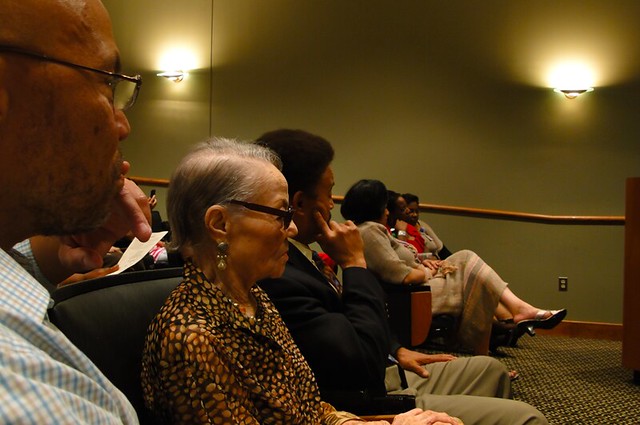
H’s father was a surgeon. He was one of the very first black surgeons to practice medicine in Pontiac, Michigan. If you were to meet a black person born in Pontiac from 1950 to 1970, my father-in-law probably delivered them into this world. He delivered most of Pontiac. When he passed away ten years ago, the steady stream of people who came to pay their respects went on for hours. Everyone had a story of how Dr. Riggs had helped make them well, or whole, or confident, or proud. Because in the black community – especially back then – being a doctor was about more than prescribing medicine and ordering tests.
My father-in-law worked hard. He graduated high school at the age of 16, undergrad at 20, and med school at 24. He served as a medic with the Tuskegee Airmen. And he chose to practice medicine in Pontiac, Michigan. He set up shop on a corner in town and he and his wife started to grow a family in a modest house nearby.

Eventually, H’s father and mother had saved enough money to buy some property and build a house. But real estate agents weren’t selling property to black people back in those days. So, a Jewish friend of the family bought the seven acre plot of land for my father-in-law, and my father-in-law bought it from him.
After the house was built, the KKK burned a cross in the front yard. I guess they weren’t convincing enough because my father-in-law didn’t flinch. He kept on growing his family, growing his practice, serving the community, and recruiting more black doctors to Pontiac, to serve the patients the white doctors didn’t want.
He’s quite a legend.
When H and I went back to Michigan last weekend, our trip coincided with a program sponsored by St. Joseph Mercy-Oakland Hospital. The program, Pioneer African American Doctors in Pontiac, honored Dr. Riggs and the 13 other doctors of color who stood their ground as trailblazers in establishing medical practices in Pontiac, in a part of town they called The Corner.
At the program, I sat in the front row with H, his mom, and his brother. The room was rich with history and pride and community and the telling of stories that made us say “Amen!” out loud – right there in the hospital.
I wouldn’t be where I am today without people like Dr. Riggs – we call him Popo. Popo was strong and he was wise about the importance of community. He was serious about giving back and about making the world a safe place for everyone.
I don’t know what I would have done if the KKK had burned a cross in my front yard when I had three young children sleeping inside. I can’t even imagine what that’s like. And part of the reason I can’t imagine it is because Popo actually lived it.
Who are the pioneers in your life?
~~~
In other news…
Did you see Michelle’s new writing community? You should check it out.


Very great blog! http://0485.org/